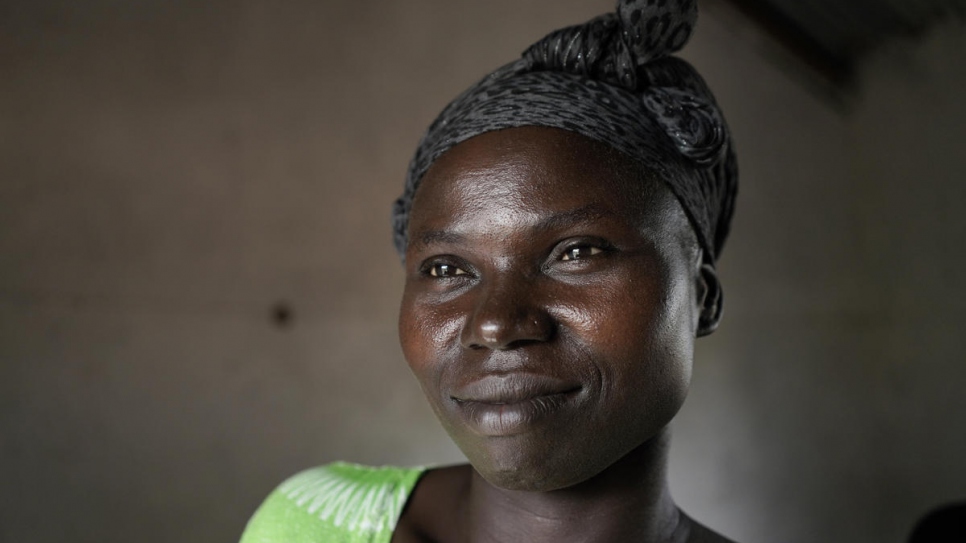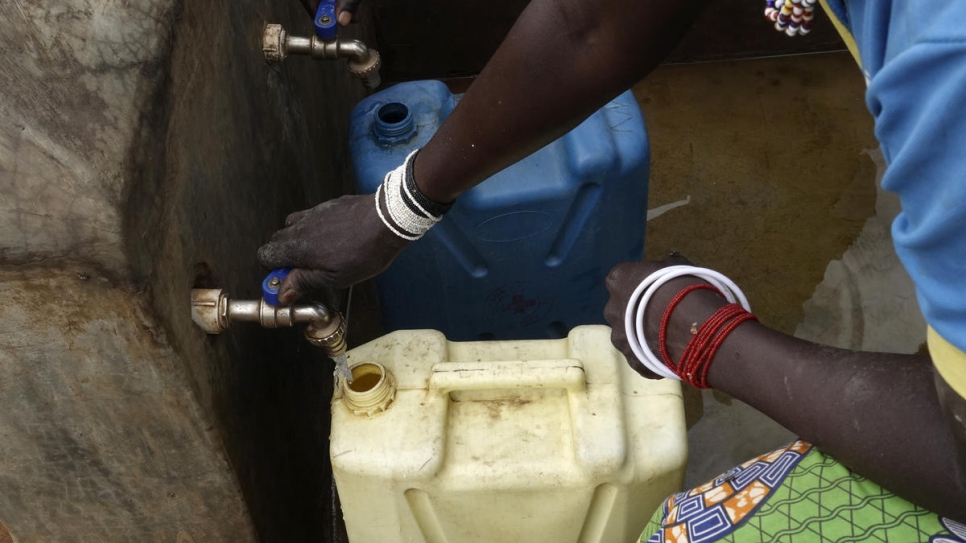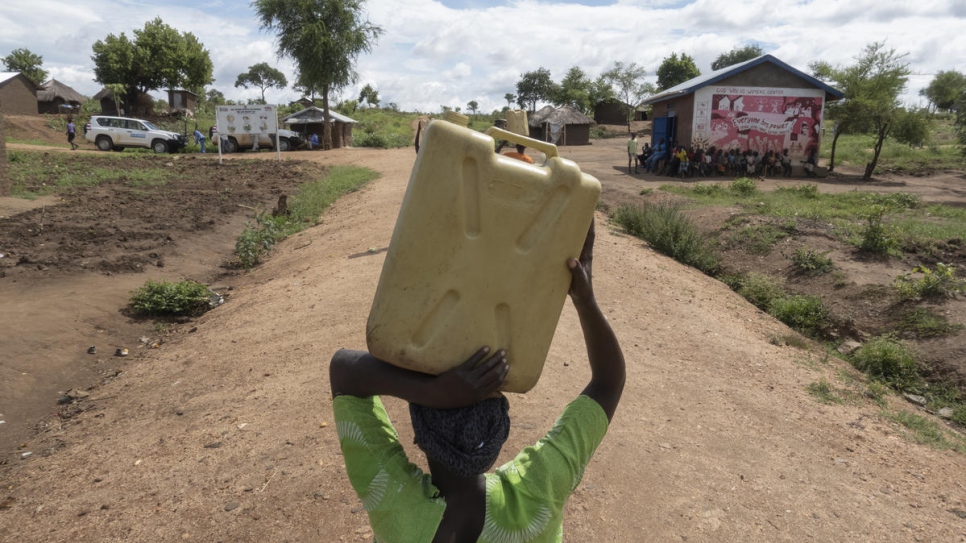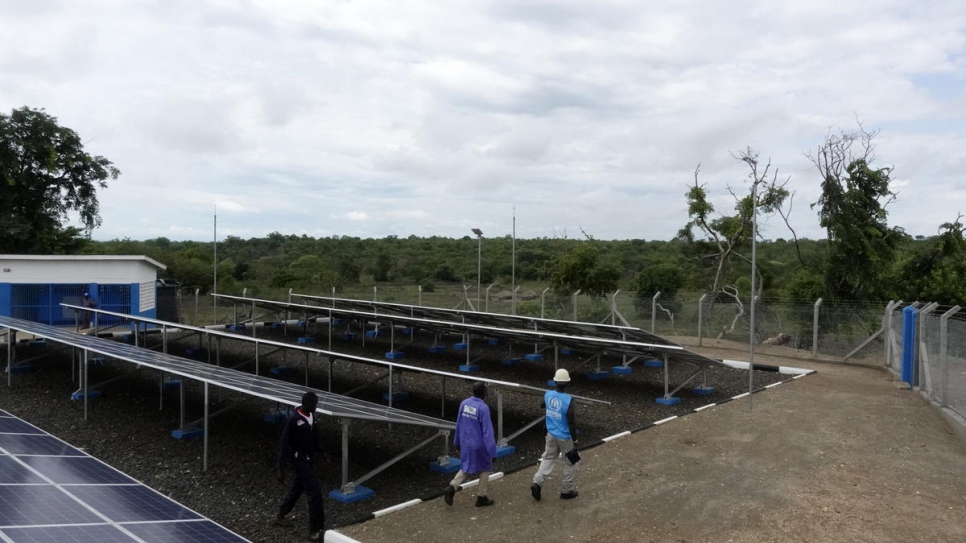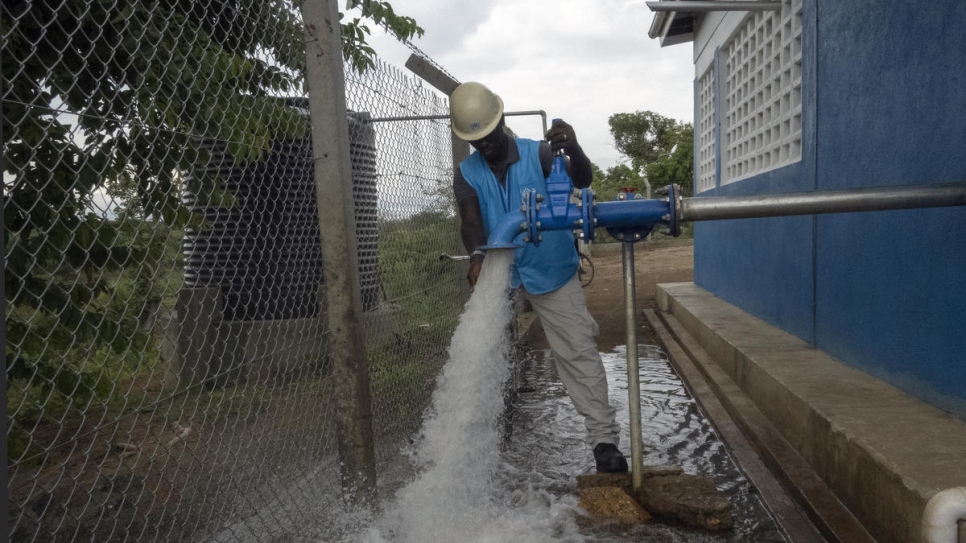Clean water brings life, and hope, to refugees and hosts in Uganda
A solar-powered water facility is saving lives in refugee settlements and host communities that previously suffered shortages.
Local residents Zamurat (left) and Zahabu carry their jerry cans from the water point to their homes in Uganda.
© UNHCR/Michele Sibiloni
When Asha Rose Sillah first arrived in Uganda as a refugee, there was so little water she drank from a swamp to quench her thirst. Now, thanks to a new borehole project, her family has plenty of clean water to drink – and enough surplus to water the onions she grows for market.
“I will have at least three to four bags (of onions),” she said. “There is more water in the community now, so we have time as women to do many things."
Asha fled South Sudan to Uganda's Bidibidi refugee settlement in 2016 at the height of an emergency that saw thousands cross the border every day. Water was scarce then, making it hard for her to care for her five children.
“There was a lot of illness. We would drink any water we could find,” she explains.
Trucks delivered water from a source 100 kilometres away on poor roads, and refugees had to queue for hours to fill as many jerry cans as they could carry.
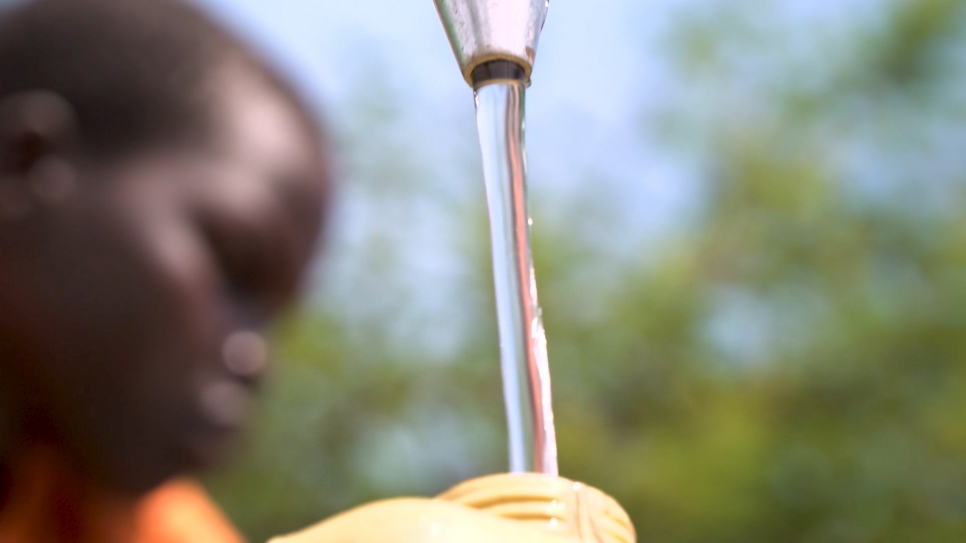
Clean water supply changes lives of refugees and host communities in Uganda (Linda Muriuki, producer / Arnold Temple, camera-editor )
The minimum water requirement for a person is 20 liters per day. Three years ago, the supply in Bidibidi refugee settlement averaged just 2.3 liters a day.
“From morning to noon, refugees could not cook, many didn’t even have water to drink or take a bath,” said Richard Ochaya, Senior Water and Sanitation and Health Associate for UNHCR, the UN Refugee Agency, in Bidibidi.
"We need to manage the resource and take care of the environment."
Thankfully, things have changed.
A solar-powered borehole set up by UNHCR with investment from partners and the private sector pumps groundwater to points closer to almost 500 households.
“We have the capacity to pump 85,000 liters of water per hour, but we are only extracting 45,000 litres because we do not want to deplete the aquifers. We need to manage the resource and take care of the environment,” said Ochaya.
The plan is to one day hand over the facility to the Ugandan government to boost water supply in the district.
“In future, if the refugee operations move away, the hosting community will be able to take care of such facilities and see them benefit generations to come,” he said.
A lack of adequate water, sanitation and hygiene facilities can devastate the health and survival of refugees in camps, outside of camps and in urban settings.
The project in Yumbe is an example of how smart investment can help refugees and host communities, by providing ready access to a supply of water.
This is the kind of approach that will be showcased at the Global Refugee Forum on 17-18 December. Governments, international organizations, local authorities, civil society, the private sector, host community members and refugees themselves will gather in Geneva to discuss the best policies to protect refugees and help them and their hosts to thrive and find lasting solutions.

